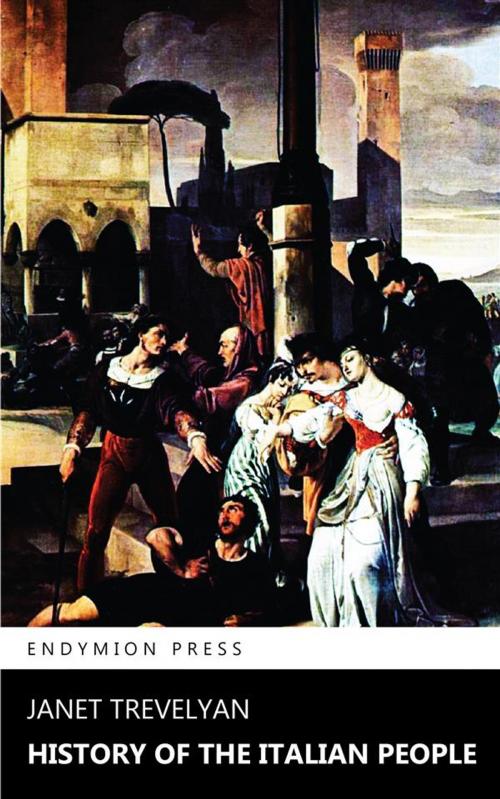| Author: | Janet Trevelyan | ISBN: | 9781531295547 |
| Publisher: | Endymion Press | Publication: | August 24, 2016 |
| Imprint: | Language: | English |
| Author: | Janet Trevelyan |
| ISBN: | 9781531295547 |
| Publisher: | Endymion Press |
| Publication: | August 24, 2016 |
| Imprint: | |
| Language: | English |
WHEN the Emperor Diocletian, towards the end of the third century A.D., set himself to reorganize the government of the known world, his stout heart may well have quailed before the magnitude of the task before him. The preceding fourteen years had witnessed a succession of six Emperors, some of them men of exceptional courage and ability, of whom three had been assassinated by their troops, one had been killed by the hardships of campaigning, another by lightning on the borders of Persia, and the last still remained to be dealt with and removed. That task successfully accomplished, Diocletian turned his attention to the greater problem before him, and the conclusion at which he arrived was that in order to save the Empire its constitution must be fundamentally remodeled. His memorable division of the whole into four parts, together with his thorough reform of the administration, enabled the machine of government to run with comparatively little friction for another century and to resist the shattering blows of the barbarian wreckers for many years longer still.
The three associates to whom Diocletian deputed the sovereignty of Europe and Northern Africa were all men of considerable experience and capacity. The eldest of them, Maximian, an unlettered soldier better suited to carry out the suggestions of his patron than to initiate a policy of his own, received with the title of "Augustus" the "dioceses" of Italy, Spain, and Africa; Constantius Chlorus, the most popular of the younger generals, was made "Cæsar" of Gaul and Britain, while Galerius, a man of vigorous but cruel temper, was set to guard the Danube frontier with the title of "Cæsar" of Mœsia and Pannonia. Diocletian himself, an "Augustus" like Maximian, kept the whole of the East, with Egypt and Thrace, and was tacitly acknowledged by each of his three partners as the guiding spirit of the confederation. He was indeed one of the most accomplished bureaucrats that have ever left their mark on the world's history. With the chaotic spectacle of the last hundred years before his eyes, he saw that the real danger lay in the abuse of power by independent generals, and he therefore initiated an elaborate system of divisions, in which the higher and lower officials should act as checks and counter-checks on one another, and thus prevent the abuse of authority. One of his first acts was to curtail the overgrown power of the Prætorian Prefect, an official who, originally the commander of the Prætorian Guards, had gradually become the general factotum and often the assassin of the Emperor, with practical control over military, judicial, and financial affairs. Diocletian divided this great office also into four, giving a Prætorian Prefect to each of his new quarters of the Empire, and at the same time considerably reducing the military power at his disposal...
WHEN the Emperor Diocletian, towards the end of the third century A.D., set himself to reorganize the government of the known world, his stout heart may well have quailed before the magnitude of the task before him. The preceding fourteen years had witnessed a succession of six Emperors, some of them men of exceptional courage and ability, of whom three had been assassinated by their troops, one had been killed by the hardships of campaigning, another by lightning on the borders of Persia, and the last still remained to be dealt with and removed. That task successfully accomplished, Diocletian turned his attention to the greater problem before him, and the conclusion at which he arrived was that in order to save the Empire its constitution must be fundamentally remodeled. His memorable division of the whole into four parts, together with his thorough reform of the administration, enabled the machine of government to run with comparatively little friction for another century and to resist the shattering blows of the barbarian wreckers for many years longer still.
The three associates to whom Diocletian deputed the sovereignty of Europe and Northern Africa were all men of considerable experience and capacity. The eldest of them, Maximian, an unlettered soldier better suited to carry out the suggestions of his patron than to initiate a policy of his own, received with the title of "Augustus" the "dioceses" of Italy, Spain, and Africa; Constantius Chlorus, the most popular of the younger generals, was made "Cæsar" of Gaul and Britain, while Galerius, a man of vigorous but cruel temper, was set to guard the Danube frontier with the title of "Cæsar" of Mœsia and Pannonia. Diocletian himself, an "Augustus" like Maximian, kept the whole of the East, with Egypt and Thrace, and was tacitly acknowledged by each of his three partners as the guiding spirit of the confederation. He was indeed one of the most accomplished bureaucrats that have ever left their mark on the world's history. With the chaotic spectacle of the last hundred years before his eyes, he saw that the real danger lay in the abuse of power by independent generals, and he therefore initiated an elaborate system of divisions, in which the higher and lower officials should act as checks and counter-checks on one another, and thus prevent the abuse of authority. One of his first acts was to curtail the overgrown power of the Prætorian Prefect, an official who, originally the commander of the Prætorian Guards, had gradually become the general factotum and often the assassin of the Emperor, with practical control over military, judicial, and financial affairs. Diocletian divided this great office also into four, giving a Prætorian Prefect to each of his new quarters of the Empire, and at the same time considerably reducing the military power at his disposal...















